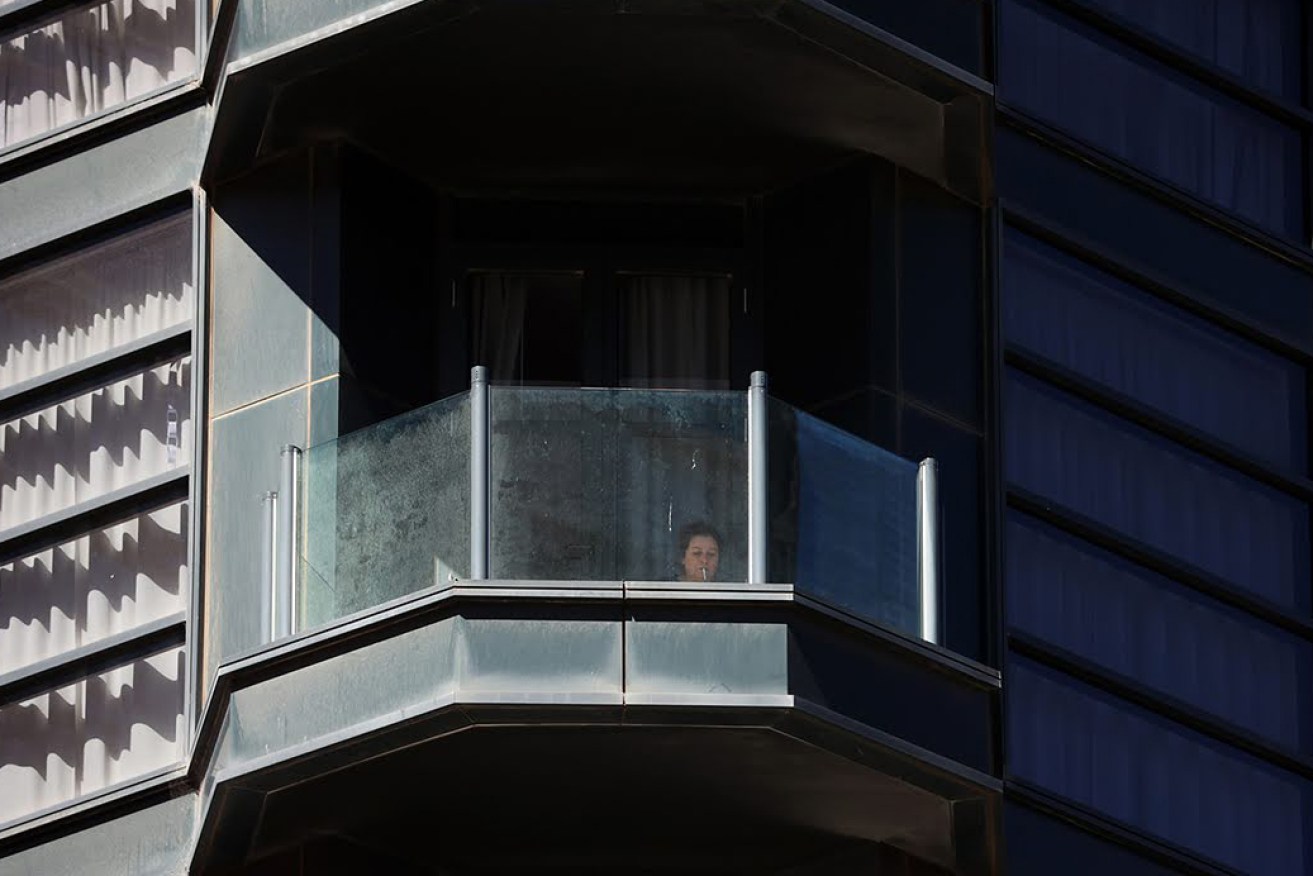Warning on PTSD fallout from pandemic
The mental toll of the COVID-19 pandemic might be greater than the physical fallout, with some people already experiencing diagnosable symptoms of post-traumatic stress disorder, South Australian researchers have discovered.

Isolating during the COVID-19 pandemic has taken a toll on people's mental health. Photo: Tony Lewis/InDaily
A new Flinders University study of 1040 online participants from five countries found more than 13 per cent had post-traumatic stress disorder (PTSD) symptoms consistent with levels necessary to qualify for a clinical diagnosis.
However, only two per cent reported that they had personally tested positive to COVID-19 and only five per cent reported that close family or friends had tested positive.
The findings, published this month in PLOS One journal, have led researchers to conclude that it is likely that “the psychological fallout from COVID-19 may reach further than the medical fallout”.
“We found that traumatic stress was related to future events, such as worry about oneself or a family member contracting COVID-19, to direct contact with the virus, as well as indirect contact such as via the news and government lockdown – a non-life-threatening event,” the report’s co-author and Flinders University PhD student Victoria Bridgland said.
“Our findings highlight the need to focus on the acute psychological distress – including the perceived emotional impact of particular events – associated with COVID-19 and built on other research from the past year that demonstrates the damaging psychological impact of COVID-19 on mental health.”
PTSD is a set of reactions, including intrusive recollections such as flashbacks, that can develop in people exposed to an event that threatened their life or safety.
In their report, Bridgland and lead researcher Associate Professor Melanie Takarangi noted that the condition commonly develops in response to past events, such as a war or natural disaster.
But they said their evidence showed that PTSD could develop in response to any experience, be it a remembered past event or an imagined future event.
“Traumatic stress symptoms may be a problem of anticipating the future, as well as a reaction to something in the past,” their report noted.
“Given the unknown timeline of COVID-19, it seems especially likely that PTSD-like symptoms could arise due to anticipating any number of negative future events (e.g., loved ones becoming sick) associated with the virus, particularly in the early weeks of the pandemic (when the current data were collected).”
The study recruited participants from the United States, United Kingdom, Canada, Australia and New Zealand and asked them how they rated their emotions when thinking about COVID-19.
Over 60 per cent of the participants reported some mental impairment due to COVID-19, such as difficulty completing day-to-day activities or troubles with training and education.
Others also reported experiencing irritability and alertness.
“While the global pandemic does not fit into prevailing PTSD models, or diagnostic criteria, our research shows this ongoing global stressor can trigger traumatic stress symptoms,” Takarangi said.
Bridgland and Takarangi concluded that the pandemic’s psychological fallout had been dubbed the “second curve” and was predicted to last for months to years.
“Long-term, comprehensive documentation of COVID-19-related traumatic stress reactions will allow health professionals to help people who could otherwise fall through the cracks,” they wrote.
“There is a clear need to expand PTSD models and in turn, better capture all people who need help for traumatic stress symptoms.”
The Órama Institute for Mental Health, Wellbeing and Neuroscience at Flinders University has developed a new resource for people struggling to come to terms with the COVID-19 pandemic.
The Appeal and Care framework, free to read here, provides advice on how people can keep mentally healthy while in quarantine and after lock down.




